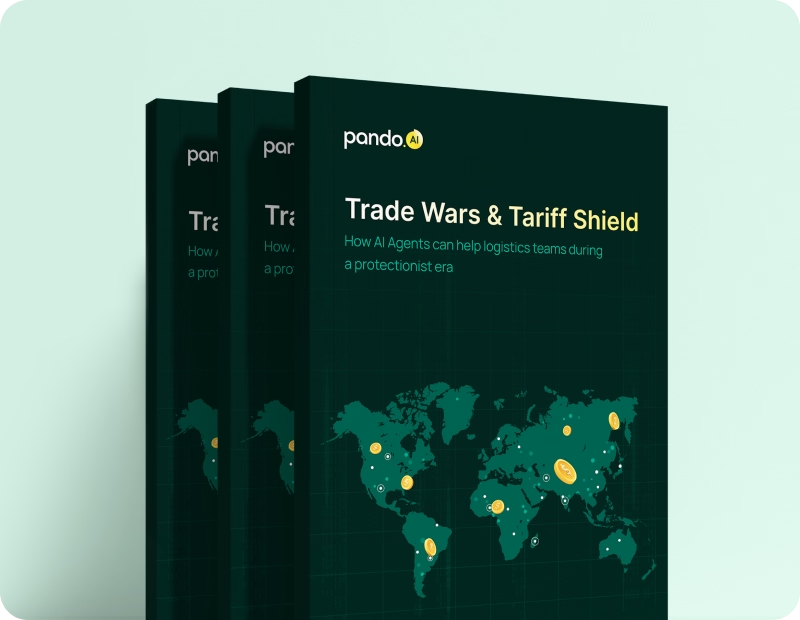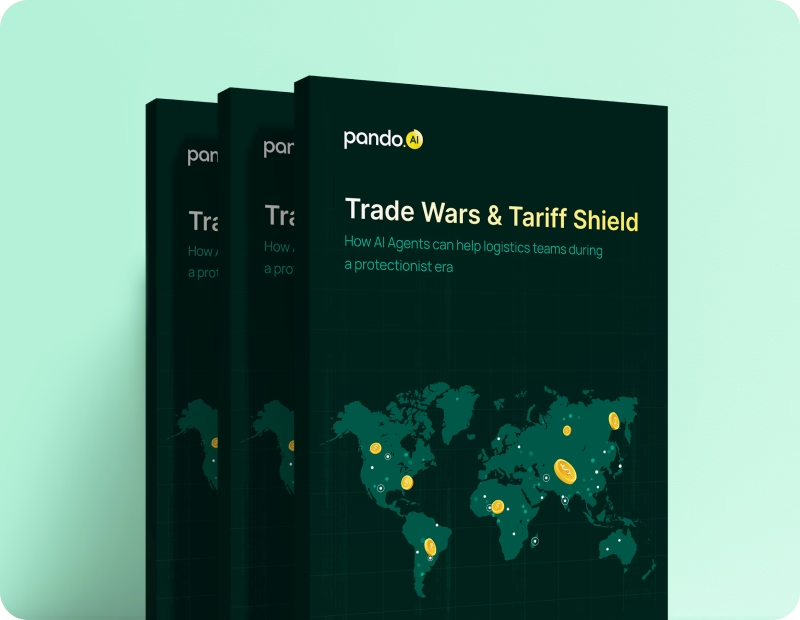-
Products Products
- Industry
- Initiatives
- Resources
- Company
- Book a demo
-
Products Products
- Industry
- Initiatives
- Resources
- Company
- Book a demo
Navigating the complex world of freight forwarding: A comprehensive guide
Streamline your supply chain with expert guidance and advanced technology.
Published on October 13, 2024 • 6 mins read
Rohit Lakshman

Streamline your supply chain with expert guidance and advanced technology.
As the world of international trade becomes more complex with its web of supply networks and ever-changing borders, freight forwarding becomes an increasingly important participant. It facilitates the efficient transfer of commodities across boundaries. With globalization, international trade will see significant growth. According to the Grandview research, the freight forwarder market will reach USD 285.6 billion by 2030. So, there is a considerable growth opportunity.
But do you know how much the freight expense is for your company's total expenditure? According to a McKinsey report, in many industries, inbound freight charges account for about 8%-12% of a company's total raw material spend, and this is often overlooked. Therefore, choosing the correct freight forwarding partner is essential in today's complicated supply chain logistics scenario for achieving freight cost reductions, on-time delivery, and regulatory compliance.
This article will walk you through the basics, covering everything from the freight forwarding best practices to ways to improve your logistics operations.
Freight forwarding: Definition and types
Professional administration of cargo movement between international points is the fundamental aspect of freight forwarding. It does not merely provide international shipping services; instead, it offers a variety of services that facilitate the connection between shippers and final destinations. Imagine a Freight Forwarder as a comprehensive solution provider for all international shipping services, offering infrastructure, expertise, and a network of partners to help clients navigate the intricacies of complex global supply chain logistics.
With various modes of transport options available, freight forwarding also has different types for different modes.
-
Air freight forwarding: Experts in the safe and timely transportation of valuable and time-sensitive cargo via air transport. Nevertheless, air freight asks for a premium more than any other freight costs. For instance, if you need to fulfill a timely delivery of products and urgently need assembly components, you can opt for air freight.
-
Ocean freight forwarding: Sea freight specialists offer a range of container options and tailored international shipping services for large or heavy shipments. It is more cost-effective, and despite being slower than air freight, it is perfect for industries that move a lot of goods. You can access intelligent transport forecasting with the help of an AI-powered transport management system (TMS). If you have a better forecast in place and provide enough time for the shipment, ocean freight forwarding is the most economical and sustainable way.
-
Multimodal freight forwarder: Multimodal transport management system (TMS) combines air, ocean, and road freight. It offers an optimized delivery time and cost. Global organizations are increasingly turning to multimodal freight solutions to optimize transport routes while keeping freight costs and speed in check. For example, you import goods through ocean freight and from the destination port, transport them through the warehouse by train, and distribute them through road carriers to final destinations.
With the help of advanced transport management systems like Pando.ai, you can opt for multimodal route optimization, predict ETA, and automate load consolidation.
Critical factors for the success of freight forwarding
To successfully navigate the freight forwarding industry, you must pay close attention to the following details:
1. Shipping routes and transit times
Freight costs and delivery times are significantly affected by the choice of shipping routes. While more cost-effective routes can improve your bottom line, they need significant time to reach the destination. On the other hand, faster routes guarantee rapid delivery but incur greater freight expenses. With advanced delivery route planning strategies, you can optimize shipping routes and enhance customer delight without overshooting your freight budget.
2. Freight cost
For efficient budgeting, knowing how much freight brokerage you need to pay is crucial. A number of variables affect this pricing, including fuel cost, fluctuation in exchange rates, and additional expenditures for things like insurance and port fees. Pando's transport management system (TMS) can automate freight cost optimization tactics and help you keep track of these expenditures.
3. Documentation and compliance
Documentation such as bills of lading, customs declarations, and certificates of origin must be accurate for smooth freight forwarding to take place. Severe penalties or costly delays may ensue from failure to comply. Risks can be reduced by keeping abreast of changes in regulations and international trade agreements. For example, customs clearance operations have been impacted by post-pandemic changes in global trade policies, necessitating more exact preparation.
Tips for selecting a reliable freight forwarder
The success of your company depends on your ability to choose a reliable freight forwarder. When deciding on a freight forwarder, keep the following in mind:
-
Experience and expertise: First and foremost, you should partner with a freight forwarder who has both the necessary expertise and in-depth knowledge of the industry. They should know the ins and outs of your target markets' legislation and have expertise with shipments like yours.
-
Networking and partnership: A trustworthy freight forwarder will have connections with several carriers, customs brokers, and other service providers. This will make sure that they have all they need to manage your shipments well.
-
Technology and tracking capabilities: In this digital era, freight forwarders must utilize advanced tracking and visibility technologies. Using AI-powered transport management systems like Pando.ai, freight forwarders are capable of supplying detailed logistics data, optimized route options, real-time traffic updates, and more. Try to find a freight forwarder that lets you track your cargo online and provides information in real-time.
-
Customer service: In the freight forwarding market, providing outstanding customer service is absolutely crucial. When choosing a freight forwarder, look for someone who is quick to respond, good at communicating, and willing to take the initiative to resolve problems. Carriers using advanced freight management tools can guarantee unmatched customer satisfaction with live shipment tracking, forecasting roadblocks, suggesting container optimization, and more.
Leveraging Pando's TMS to streamline your freight forwarding
The digital transformation of the logistics sector has opened up numerous possibilities for businesses. Though freight forwarding is a complicated industry, but there are ways to streamline logistics operations and optimize expenses. Tools like Pando.ai allow you to seamlessly integrate intelligent transport management systems into your existing operations. It reduces the complexity of managing freight costs with the help of automated cost calculations based on real-time data analysis of fuel surcharges, port fees, and shipping routes.
Castrol is one of our happy customers, and according to them, "Pando TMS helps plan efficient routes and consolidate loads, reducing fuel consumption and improving resource utilization."
To stay ahead in the fast-paced world of global trade, it's essential to follow freight forwarding best practices, use technology like Pando.ai, and collaborate closely with dependable freight forwarders.
Interested in learning more about supply chain logistics best practices? Visit our resource section or go through our customer success stories.
Subscribe to Pando blog and Crossroads newsletter now!
Stay up to date with the latest logistics, transportation, and supply chain tips and news.
Subscribe Here!













